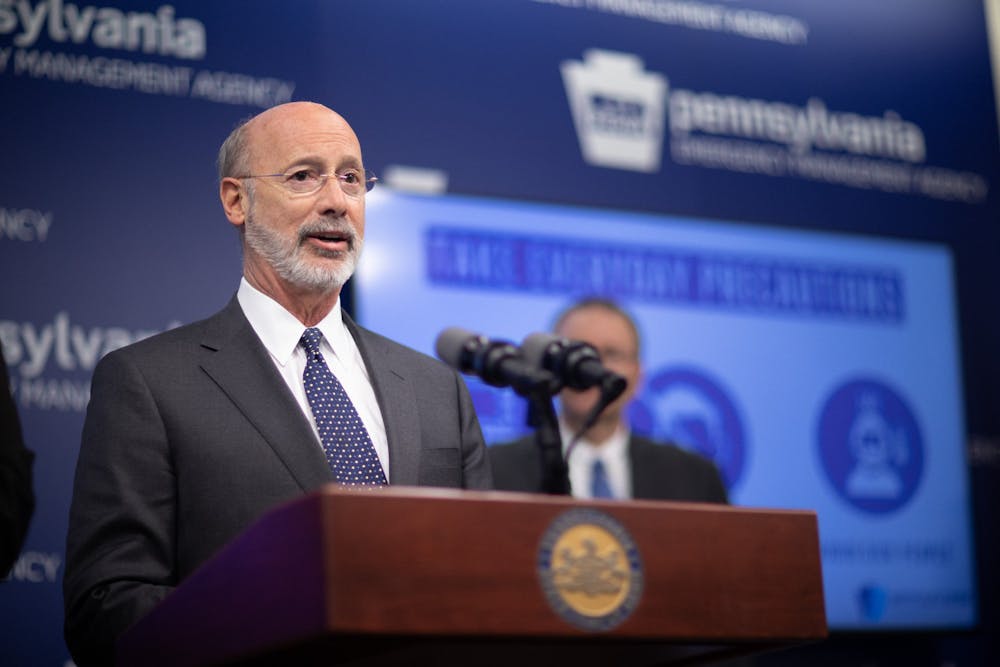Pennsylvania Gov. Tom Wolf’s order to suspend non-life-sustaining business operations has displaced hundreds of thousands of Pennsylvania residents from work.
Although widely viewed as necessary, his response to the COVID-19 coronavirus pandemic has left many weighing the risk of illness versus the prospect of unemployment.
By any measure, the coronavirus outbreak is a public health emergency. As of Monday evening, the Pennsylvania Health Department shows that 7,016 confirmed cases in the commonwealth with 90 deaths attributed to the virus have jumped to 14,559 cases and more than 150 deaths within the span of a week. But with a limited number of tests occurring, it is impossible to assess the true extent of infections statewide.
Despite the severity of the epidemic, restricting commerce is a dangerous and slippery slope. The United States Department of Labor reported that 405,880 Pennsylvanians filed for unemployment during the week of March 28.
With jobless rates skyrocketing and profits falling, fears of a recession are high. Predictably, Wolf’s closure of on-site business activities has provoked criticism. Most notably, members of the construction industry have questioned their designation as a non-essential trade.
According to Brian Pederson from the Central Penn Business Journal, “Pennsylvania is the only state to shut down all active public and private construction sites, while issuing some selective waivers.”
Pederson reported that Pennsylvania Sen. David J. Arnold is introducing legislation to support the construction industry and noted the bill would focus on “projects, which are of an open-air nature.”
Early indications suggest bipartisan support exists for the proposal.
But any attempt to restore state commerce must be approached with caution. An educated strategy based on science and common sense is required.
It is inconceivable to think bars, retailers or other businesses hosting large gatherings can reopen soon. Similarly, it would be unwise for schools or offices to open their doors in haste.
However, it is reasonable to explore policies that permit outdoor business operations pursuant to strict health and safety guidelines.
While there is no denying the financial impact of Wolf’s order, economic hardships cannot take precedence over public health. Rather, a balancing act between wealth and wellness must occur. After all, this crisis isn’t a matter of politics or ideology. It’s about saving lives.
And now more than ever, we cannot lose sight of the big picture. Credit ratings can be restored. Lost lives cannot.



The Slate welcomes thoughtful discussion on all of our stories, but please keep comments civil and on-topic. Read our full guidelines here.